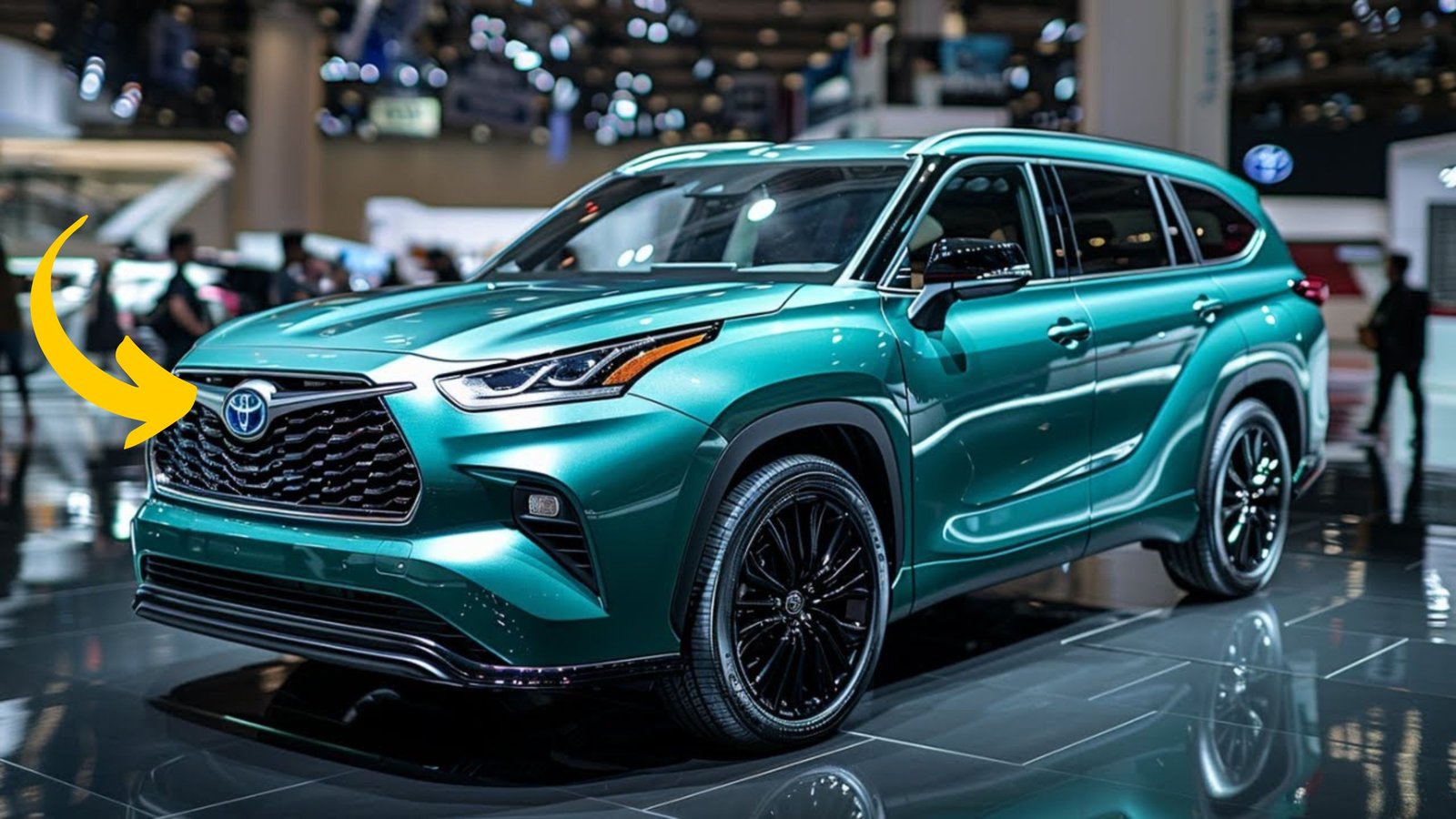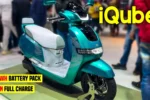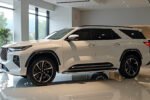Toyota Highlander Hybrid 2025: The 2025 Toyota Highlander Hybrid remains one of the most compelling choices in the midsize SUV market. It blends practical family utility with improved fuel efficiency and a reputation for reliability. In this review, we’ll walk through its pricing, performance, features, pros & cons, and whether it’s a smart buy in 2025.
Toyota Corolla Cross Hybrid 2025: Next-Gen SUV with Price, Mileage, Specs, Interior & Smart Tech!
Price and Trim Overview
For 2025, the Highlander Hybrid’s pricing starts at a premium over the non-hybrid version, reflecting its additional components and fuel efficiency benefits. The base Highlander starts around $41,270 for gas versions, and with hybrid drivetrains and higher trim levels, the cost climbs. Some listings show gas Highlanders priced from $39,820 up to well over $50,000 depending on trim, options, and all-wheel-drive setups.
Because hybrid models include more advanced hardware (battery, motors, power electronics), they carry a higher sticker price. But the trade-off comes through lower fuel costs over time. The Highlander Hybrid is positioned as a blend of luxury, utility, and economy in the SUV space.
Mileage, Performance & Efficiency
The Highlander Hybrid uses Toyota’s hybrid synergy drive technology, combining a gasoline engine with electric motors. This setup provides a boost in fuel efficiency—especially in city driving, where hybrids shine. Typical electric-gas hybrids in this class manage combined mileage in the mid to high 20s mpg (~27–30 mpg) depending on configuration, driving style, and conditions. Some sources suggest that Toyota’s hybrid setup can deliver between 27 and 31 mpg in mixed driving.
In terms of power, the hybrid system gives a more responsive throttle feel than older nonhybrid SUVs. It helps smooth out acceleration, particularly from a stop, and tends to reduce fuel consumption during urban commuting or stop-and-go traffic. The trade-off is additional weight from battery packs and more complex components, but Toyota’s hybrid architecture is mature and well tested.
Features, Comfort & Tech
Toyota outfits the Highlander Hybrid well for its price bracket. Standard and optional features include:
-
Hybrid instrumentation and energy flow displays
-
Infotainment systems with touchscreen, smartphone integration, navigation
-
Advanced driver aids: adaptive cruise, lane-keep assist, blind-spot monitoring, automatic emergency braking
-
Interior comfort: three rows of seating (for many trims), quality upholstery, good cargo room
-
All-wheel drive (AWD) options — many hybrid models come standard AWD, which helps in snow or slippery roads
-
Quiet cabin thanks to electric assist and sound insulation
-
Modern styling touches both inside and out — LED lighting, refined dashboard layout, premium materials on higher trims
The hybrid powertrain doesn’t dominate the driving experience; it complements it, making the Highlander feel more refined and efficient without sacrificing usability.
Toyota SUV 2025 New Launch: Premium Design, Smart Features & Powerful Performance Revealed
Strengths & Weaknesses
Strengths
-
Better fuel economy than the nonhybrid version
-
Strong brand reliability and resale value (Toyota has a solid reputation)
-
Well-balanced performance — not sluggish, thanks to electric assist
-
Utility and flexibility — three rows, decent cargo space
-
Safety and convenience features come well equipped even on mid trims
Weaknesses
-
Higher purchase cost compared to the gas-only Highlander
-
Added complexity & possibly higher maintenance costs (although hybrids tend to reduce some wear)
-
Limited power boost — it’s efficient, not a performance SUV
-
Battery weight & space compromise — battery packs add weight and may impinge slightly on cargo underfloor space
Verdict
The 2025 Toyota Highlander Hybrid is a strong choice for buyers looking for a midsize SUV that balances family utility with better fuel efficiency. It doesn’t offer dramatic performance breakthroughs, but it delivers dependable hybrid savings with the flexibility of three-row seating and a refined driving experience. For those who drive enough daily to offset the higher upfront cost, it makes sense. For other buyers, comparing total cost of ownership with the gas version will tell if it’s worth it.
FAQs-Toyota Highlander Hybrid 2025:
Q1: What’s the fuel economy (mpg) for the Highlander Hybrid 2025?
Generally, you can expect somewhere in the mid-to-high 20s mpg combined (city + highway), often in the range of 27–31 mpg, depending on trim, driving conditions, and whether AWD is used.
Q2: How much more does the hybrid version cost vs the gas version?
The hybrid typically carries a premium over the base gas Highlander to account for the battery and electric components. That premium can range from a few thousand dollars to more, depending on trim options. Over time, fuel savings help offset that cost.
Q3: Is the hybrid system reliable and costly to maintain?
Toyota has a long track record with hybrid systems. They tend to reduce stress on the engine and brakes (since regenerative braking helps). Battery warranties are usually generous (8-10 years or more), but long-term replacement costs should be considered if you plan to keep the vehicle for many years.
Q4: Does the Highlander Hybrid come with AWD?
Yes, many Highlander Hybrid models come standard or optionally with all-wheel drive. This is especially useful in regions with snow or slippery roads.
Q5: How does the driving experience compare to the gas version?
The hybrid feels a bit smoother off the line and offers better handling in city driving due to electric assist. On highway cruising, the experience is comparable, though the hybrid may feel quieter and more refined due to the electric power contribution.
Q6: Should I buy the hybrid if I mostly drive highway miles?
If your driving is mostly highway, the hybrid benefit is somewhat less dramatic than in city driving, but you’ll still see gains. The hybrid is beneficial in mixed driving, in traffic, and for those wanting lower fuel costs over time.





